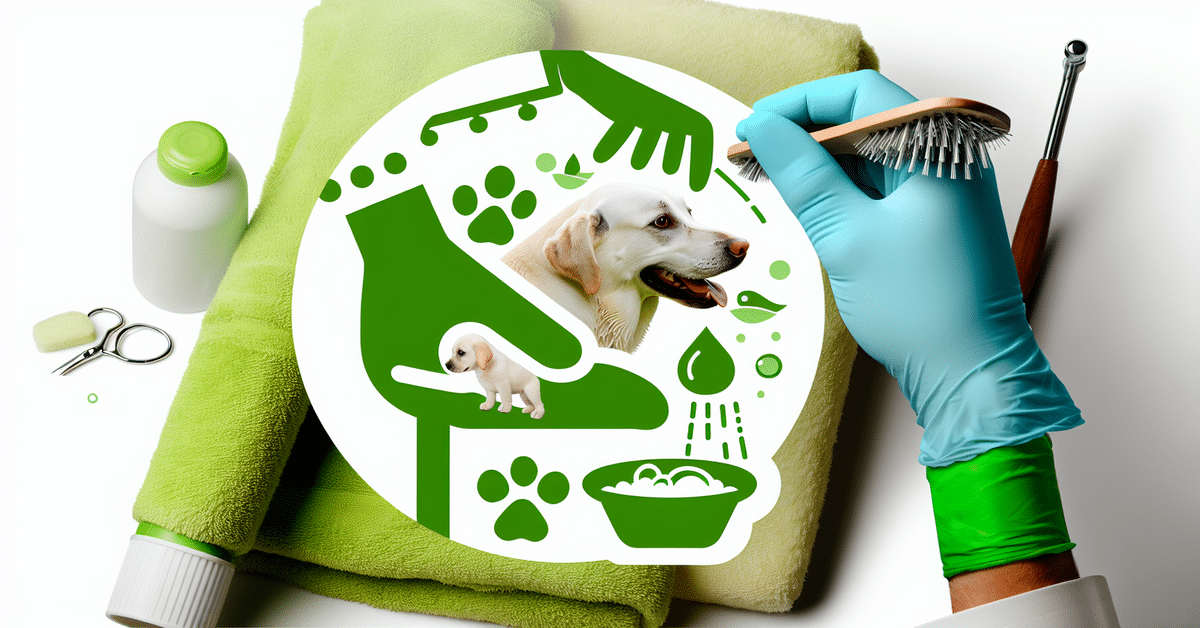Why Dogs with Sensitive Skin Need Special Care
Sensitive skin in dogs can often lead to discomfort, irritation, and various skin conditions. Understanding your dog’s specific grooming needs is fundamental to ensuring their well-being. Common issues such as dermatitis, allergic reactions, and even environmental factors can contribute to sensitivity. Dogs with sensitive skin require a tailored hygiene routine that accounts for these issues. By being proactive and educated about your dog’s skin health, you can significantly improve their quality of life.
Know Your Dog’s Skin: Identifying Signs of Sensitivity
Recognizing the signs of skin sensitivity is the first step in caring for your dog. Look for symptoms like redness, flakiness, itching, and hair loss. Some breeds, including bulldogs, terriers, and retrievers, are more prone to skin sensitivities and allergies. If your dog regularly scratches or licks certain areas, it may be time to investigate further.
Consulting with a veterinarian is essential, particularly if you observe persistent symptoms. Additionally, allergies—whether environmental or dietary—often play a pivotal role in skin health. Keep a close eye on any changes in your dog’s behavior or condition, as these can help identify underlying causes of skin problems.
Bathing Tips for Dogs with Sensitive Skin
Bathing frequency varies based on your dog’s lifestyle and specific skin conditions. Generally, dogs with sensitive skin should be bathed every 4 to 6 weeks unless directed otherwise by a vet. Choose the best dog shampoo for sensitive skin—look for formulas that are hypoallergenic, free of parabens, and enriched with soothing ingredients like oatmeal or aloe vera.
When bathing your dog, ensure the water temperature is lukewarm; water that is too hot can further irritate the skin. Use gentle, circular motions to lather the shampoo, and rinse thoroughly to remove all product.
For dogs with particularly dry or irritated skin, natural remedies can be beneficial. Coconut oil can hydrate the coat and soothe inflammation, while aloe vera provides cooling relief. Always consult your veterinarian before introducing new products or treatments.
Grooming Essentials for Dogs with Skin Sensitivities
Proper grooming tools can make a significant difference in maintaining your dog’s skin health. Opt for grooming tools designed for sensitive skin, such as soft-bristle brushes or grooming gloves. These help reduce shedding while minimizing skin irritation. Regular brushing not only eliminates loose fur but also distributes natural oils, which keeps the skin moisturized.
To keep your dog clean between baths, consider using pet-safe wipes and dry shampoos specifically formulated for sensitive skin. Remember that nail trimming and ear cleaning are also essential for hygiene; do so gently to avoid causing any discomfort.
The Role of Diet in Healthy Skin & Coat
Diet significantly affects your dog’s skin and coat health. Many skin issues stem from allergens in dog food, such as grains, beef, or chicken. Consult your veterinarian about a diet that accommodates your dog’s sensitivities; hypoallergenic dog food can be a good choice.
Incorporating omega-3 fatty acids into your dog’s diet, through supplements or certain foods, can enhance skin condition and coat luster. Proper hydration is equally crucial—always ensure your dog has access to fresh, clean water to keep their skin supple and healthy.
How to Prevent Skin Irritation in Dogs: Proactive Hygiene Habits
Establishing a routine can help prevent skin issues from arising. Create a daily and weekly care routine that includes regular brushing, occasional baths, and routine nail trimming. Keep an eye on environmental factors that may provoke skin irritation; pests like fleas and ticks can worsen skin conditions.
Ensure your home is a safe haven by monitoring for household allergens and using non-toxic cleaning supplies. Be vigilant about the products you apply; harsh shampoos or grooming supplies can exacerbate skin issues. Always choose gentle, pet-friendly alternatives.
Frequently Asked Questions (FAQ) Section
What can I use to relieve my dog’s itchy skin?
Consider using a veterinarian-recommended topical treatment or moisturizing spray specifically designed for dogs.
What is the best dog shampoo for sensitive skin?
Look for hypoallergenic shampoos with soothing ingredients like oatmeal or chamomile.
How often should you bathe a dog with skin allergies?
Typically, every 4-6 weeks, but consult your veterinarian for an individualized plan.
Can I use human skincare products on my dog?
No, human products can disrupt your dog’s skin pH balance and cause irritation.
What kind of diet is best for dogs with sensitive skin?
A diet free from common allergens and rich in omega-3 fatty acids is ideal. Consult your vet for personalized recommendations.
Caring for Dogs with Sensitive Skin for a Happy, Healthy Life
Ensuring your dog enjoys a happy and healthy life involves understanding and implementing healthy hygiene habits for dogs with sensitive skin. Regular grooming, suitable bathing practices, dietary care, and preventive measures can drastically improve their quality of life. Don’t hesitate to seek professional advice when needed—your dog’s health is paramount! By prioritizing hygiene, you’re not just caring for their skin; you’re investing in their overall well-being.

